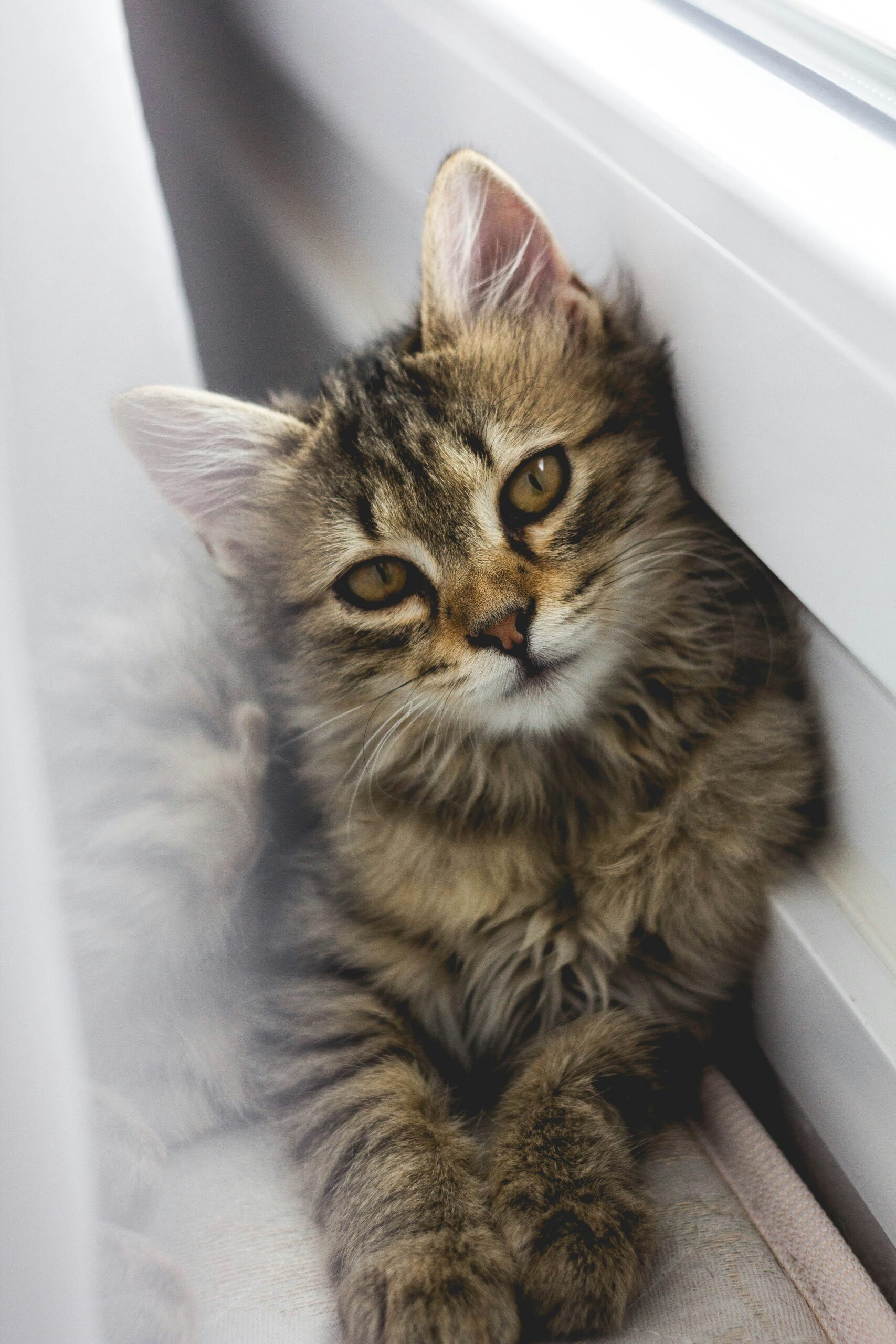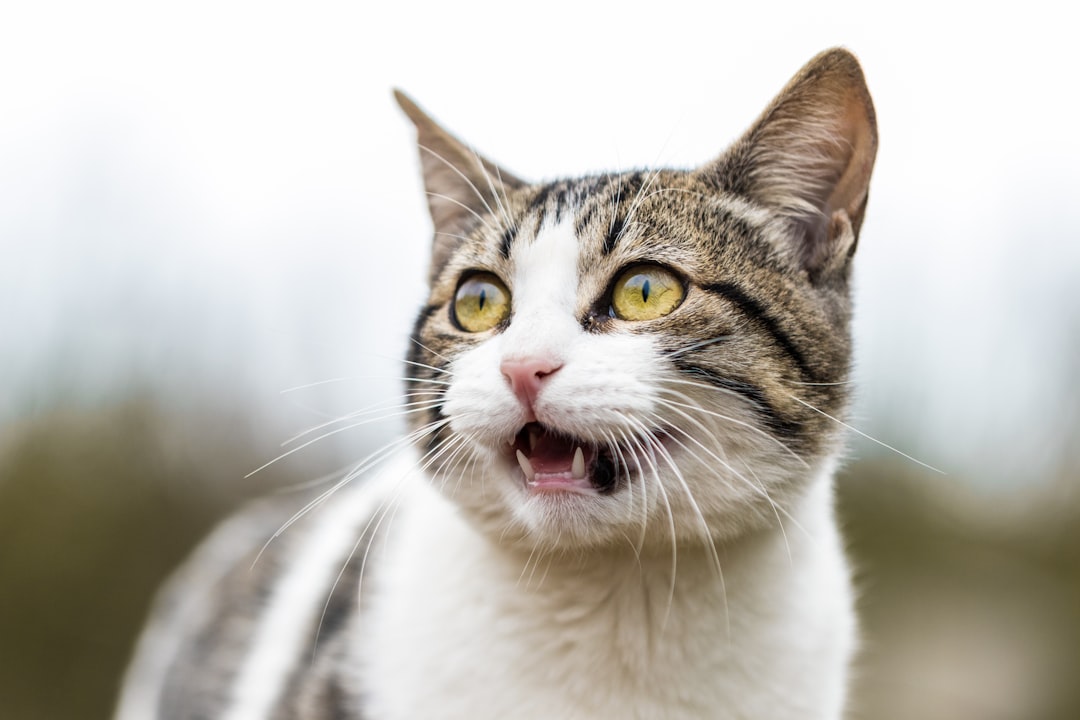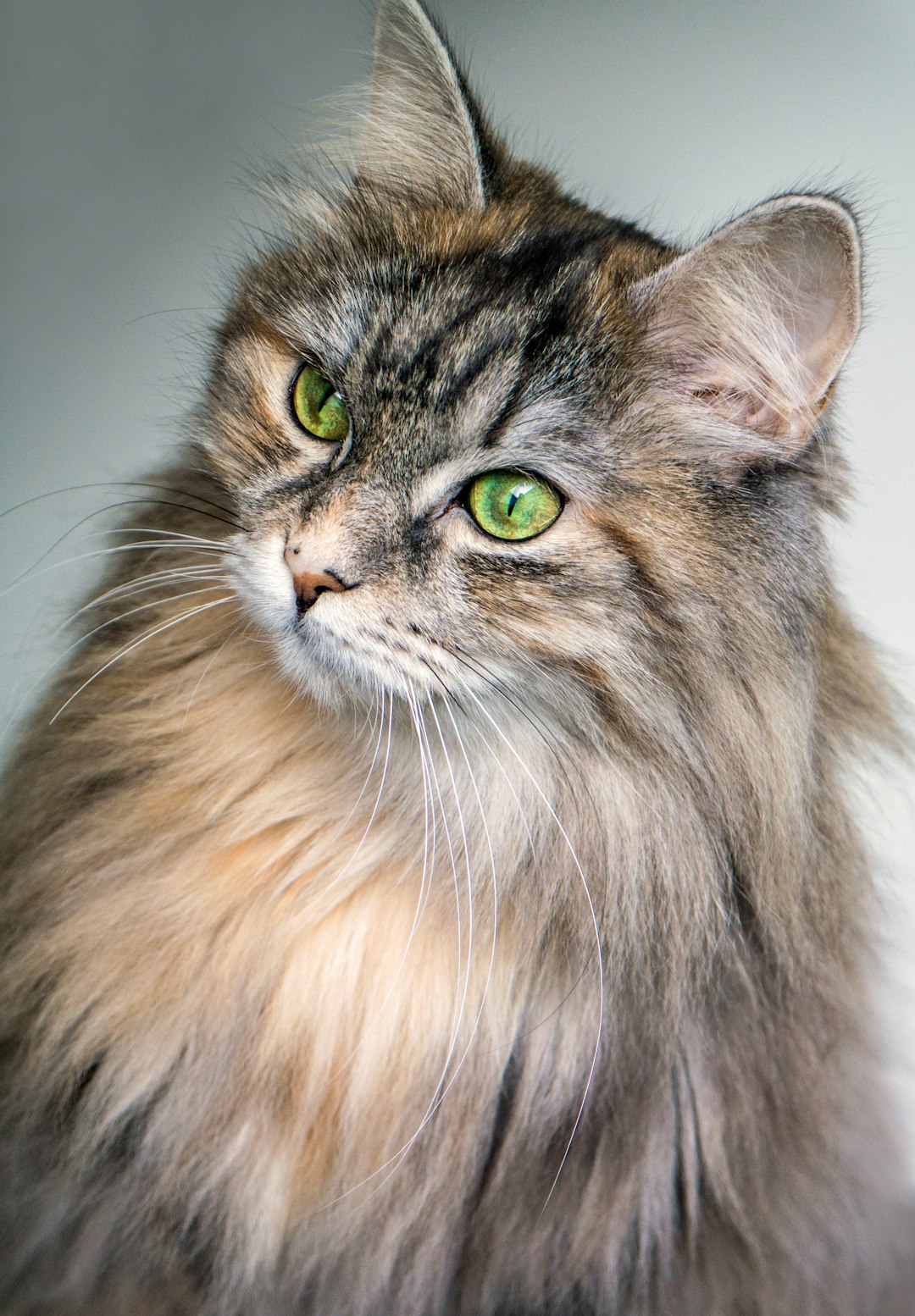Cats are beloved companions, yet when they cough, it can be concerning for pet owners. Understanding the reasons behind a cat cough is essential for ensuring your feline friend’s well-being. Various factors can contribute to this issue, ranging from allergies and respiratory problems to more serious illnesses. By recognizing the accompanying symptoms and knowing when to seek veterinary care, you can take appropriate action. In this guide, we will explore the causes and solutions of your cat’s cough, equipping you with the knowledge needed to address this common issue effectively.
Possible Causes of Cat Coughing
Cat cough can stem from various underlying issues, and understanding these causes is crucial for your feline friend’s health. Here are some common reasons why your cat might be coughing:
- Respiratory Infections: Bacterial or viral infections may lead to coughing as mucus accumulates in the airways.
- Allergies: Environmental factors like dust, pollen, or smoke can irritate your cat’s respiratory system, resulting in a cough.
- Asthma: Feline asthma is a chronic condition that causes inflammation and narrowing of the airways, leading to coughing.
- Foreign Objects: If your cat swallows or inhales a small foreign object, it can cause irritation and coughing.
- Heartworm Disease: Although more common in dogs, heartworm can also affect cats, leading to a persistent cough.
Identifying the exact cause of cat cough involves observing other symptoms and seeking veterinary advice if necessary. By understanding these potential triggers, you can better address your cat’s health needs and ensure more effective treatment options.
Understanding Feline Respiratory Issues
Feline respiratory issues significantly contribute to cat cough occurrences. Consequently, understanding these challenges helps you identify their impact on your cat’s health. Here’s an overview of common respiratory problems:
- Infections: Viruses like feline calicivirus or herpesvirus can lead to upper respiratory infections, resulting in coughing.
- Asthma: Chronic inflammation of the airways causes coughing and wheezing, often triggered by allergens or irritants.
- Bronchitis: This condition involves the inflammation of the bronchial tubes, possibly causing persistent coughing.
Key Differences Between Respiratory Issues
| Condition | Symptoms | Coughing Frequency |
|---|---|---|
| Upper Respiratory Infection | Nasal discharge, sneezing | Often episodic |
| Asthma | Wheezing, difficulty breathing | Can be chronic |
| Bronchitis | Persistent cough, lethargy | Frequent |
Recognizing signs of respiratory distress can help manage your cat’s condition. Keep an eye on your cat’s overall health and behavior if you notice a cat cough, and consider these respiratory issues as potential underlying causes. Early identification leads to more effective treatments and a better quality of life for your feline friend.
The Role of Allergies in Cat Coughing
Allergies play a significant role in the occurrence of cat cough, often manifesting as irritation in the respiratory system. Understanding how allergies impact your feline friend can help you manage and reduce coughing episodes.
Common Allergens Include:
- Pollen: Seasonal changes can introduce new pollen into your cat’s environment, causing respiratory discomfort.
- Dust Mites: These tiny creatures thrive in household dust, triggering allergic reactions in sensitive cats.
- Mold Spores: Damp areas in your home can promote mold growth, which may lead to coughing.
- Perfumes and Cleaning Products: Strong chemicals can irritate a cat’s airways, resulting in coughing fits.
Symptoms of Allergies:
- Frequent coughing (the classic cat cough)
- Sneezing
- Watery eyes
- Itchy skin or excessive grooming
While allergies can cause minor discomfort, consistent cat cough associated with allergic reactions may indicate a need for further evaluation. By recognizing allergenic triggers, you can create a more comfortable living environment for your cat and potentially reduce the incidence of their cough.
Identifying Symptoms That Accompany Coughing
When dealing with a cat cough, it’s essential to observe any accompanying symptoms that may indicate the severity of the condition. Recognizing these signs can help you determine whether your cat needs immediate veterinary attention. Common symptoms that may accompany coughing include:
- Wheezing: A whistling sound produced during breathing.
- Sneezing: Frequent sneezing can suggest an underlying respiratory issue.
- Nasal discharge: Look for any mucus or blood-like discharge.
- Lethargy: A noticeable decrease in your cat’s energy and activity levels.
- Loss of appetite: Reduced interest in food can indicate discomfort.
- Difficulty breathing: Struggling to breathe or rapid breathing can be critical.
Comparison of Symptoms
| Symptom | Mild Concern | Urgent Concern |
|---|---|---|
| Wheezing | Possible | Yes |
| Sneezing | Possible | Yes |
| Nasal discharge | No | Yes |
| Lethargy | Possible | Yes |
| Loss of appetite | Possible | Yes |
| Difficulty breathing | No | Yes |
If your cat experiences any combination of these symptoms along with coughing, it’s crucial to consult with a veterinarian to rule out serious health issues. Keeping an eye on your cat’s overall behavior can provide valuable information about their health during coughing episodes.
When to Be Concerned About Your Cat’s Cough
Not all cat cough episodes require immediate attention, but specific signs indicate that you should be concerned. Pay close attention to your cat’s behavior and health. Here are key indicators to watch for:
Frequency and Duration:
- Frequent coughing episodes (more than twice a day) lasting more than a week can signal an underlying issue.
Accompanying Symptoms:
- Look for other warning signs such as:
- Vomiting
- Difficulty breathing
- Lethargy
- Loss of appetite
- Nasal discharge
- Look for other warning signs such as:
Change in Sound:
- If the cough sounds different, such as becoming deep or wheezy, consider it a red flag.
Age and Health History:
- Kittens and older cats are more vulnerable. If your cat has pre-existing respiratory issues, be more vigilant.
In short, if your cat’s cough persists or accompanies other worrying symptoms, consult a veterinarian. Remember, early intervention can make a significant difference in your cat’s health regarding cat cough issues.
Common Illnesses That Cause Coughing in Cats
Understanding the common illnesses that lead to cat cough can help you identify when your furry friend needs attention. Here are several conditions that may trigger coughing:
Feline Asthma: This chronic condition inflates the airways, causing wheezing and coughing. Over time, it can lead to more serious respiratory problems.
Bronchitis: Inflammation of the bronchial tubes causes persistent coughing and can be acute or chronic.
Upper Respiratory Infections (URI): Commonly caused by viruses or bacteria, URIs often lead to coughing, sneezing, and nasal discharge.
Parasites: Lungworms and other parasites can invade your cat’s respiratory system, resulting in coughing and breathing difficulties.
Heart Disease: Conditions like congestive heart failure can lead to fluid buildup in the lungs, causing coughing spells.
Quick Comparison Table
| Illness | Main Symptoms | Severity |
|---|---|---|
| Feline Asthma | Wheezing, cough | Chronic |
| Bronchitis | Dry or productive cough | Chronic |
| Upper Respiratory Infection | Cough, sneezing | Variable |
| Parasites | Cough, weight loss | Moderate to severe |
| Heart Disease | Cough, lethargy | Severe |
Being aware of these common illnesses associated with cat cough can help you make informed decisions about your cat’s health. If your pet shows signs of coughing, consult with your veterinarian promptly.
Preventive Measures for Cat Coughing
Preventing a cat cough involves proactive care and attention. Here are some essential measures to reduce the risk of respiratory issues:
Maintain a Clean Environment: Regularly clean your home to minimize dust and allergens. Avoid smoking indoors, as tobacco smoke can irritate your cat’s respiratory system.
Monitor Allergens: Identify and control potential allergens. Common triggers include pollen, mold, and household chemicals. Switch to hypoallergenic products when possible.
Regular Vet Check-ups: Schedule routine veterinary visits. Early detection of respiratory issues can prevent more serious complications related to cat cough.
Vaccinations: Ensure your cat is up to date on vaccinations, particularly against infectious diseases that cause respiratory illnesses, such as feline calicivirus and feline herpesvirus.
Stress Reduction: Keep your cat’s environment calm. Stress can exacerbate underlying respiratory conditions, making your cat more vulnerable to coughing.
By taking these preventive steps, you can significantly reduce the likelihood of issues that lead to cat cough. Always stay alert for changes in your cat’s behavior, as early intervention is key to their overall health.
Effective Home Remedies for a Coughing Cat
When dealing with cat cough, it’s crucial to approach the situation with care. While home remedies can help alleviate mild symptoms, always monitor your cat closely. Here are some effective remedies to consider:
Humidifier: Adding moisture to the air can soothe your cat’s respiratory system. Place a humidifier in the room where your cat spends most of its time.
Steam Therapy: Similar to a humidifier, bringing your cat into a bathroom filled with steam can help relieve congestion. Just run a hot shower for 10-15 minutes and let your cat enjoy the warm air.
Honey: A small amount of honey can be soothing for a sore throat. Make sure to consult your veterinarian for appropriate dosage based on your cat’s weight.
Dietary Adjustments: Ensure your cat is eating a balanced diet rich in omega-3 fatty acids. This can promote respiratory health.
Herbal Remedies: Herbs like thyme and chamomile can be beneficial. However, consult your vet before introducing any herbal treatments.
Using these home remedies may offer relief, but keep monitoring your cat’s condition. If the cat cough persists or worsens, seek professional veterinary care.
When to Seek Veterinary Care
Recognizing when to seek veterinary care for your cat cough is crucial for their health. While occasional coughing can be normal, certain signs indicate a need for professional evaluation.
Look for these warning signs:
- Persistent Coughing: If your cat coughs continuously for more than a day.
- Difficulty Breathing: Struggling to breathe or wheezing can signal serious issues.
- Loss of Appetite: A sudden decrease in food intake can indicate discomfort or illness.
- Lethargy: If your cat shows a marked decrease in energy or playfulness.
- Fever: An elevated temperature may accompany respiratory issues; check with a thermometer.
If your cat exhibits any of these symptoms along with a cough, it’s essential to consult your veterinarian promptly. Early intervention often leads to better outcomes.
Overall, understanding the implications of a cat cough and recognizing when to act can help prevent more severe health issues down the line. Keep a close watch on your feline friend—proactive care is key!
Understanding Treatment Options for Cats That Cough
When your feline friend experiences a cat cough, it’s essential to explore effective treatment options. Addressing the underlying cause can significantly improve your cat’s health. Here are common approaches:
Veterinary Assessment: Always start with a professional evaluation to determine the root of the cat cough.
Medications: Depending on the diagnosis, your vet may prescribe:
- Antibiotics for bacterial infections
- Corticosteroids to reduce inflammation
- Cough suppressants for severe cases
Supportive Care: Enhance your cat’s comfort with:
- Humidifiers to ease breathing
- Hydration through fresh water or broths
- Rest in a calm environment
Dietary Changes: A well-balanced diet can support your cat’s immune system. Consider:
- High-quality protein sources
- Omega fatty acids to aid in inflammation reduction
Follow-Up Care: Monitoring your cat’s cough and regular vet visits will help track recovery.
Always consult your veterinarian before starting any treatment for a cat cough to ensure the best care for your furry companion.



